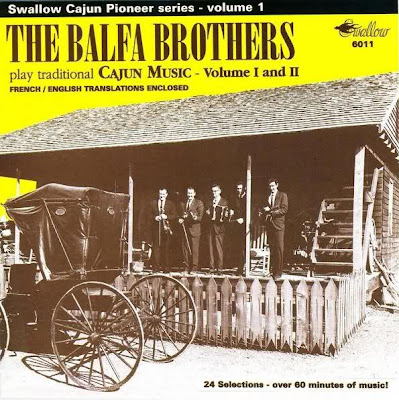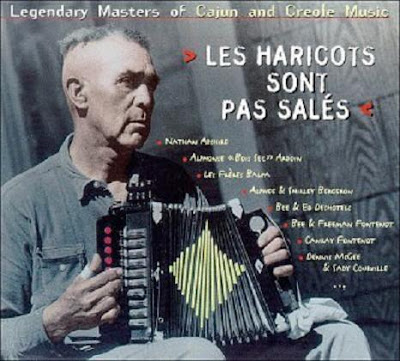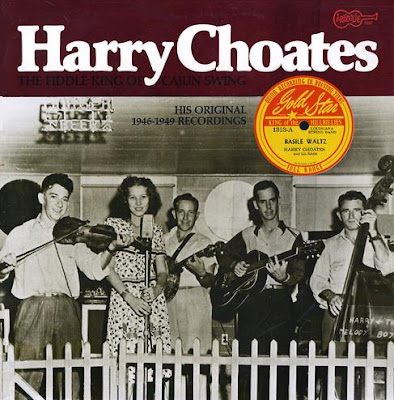
SW6011
01. 'Tit Galop Pour Mamou 2:05
02. Je Suis Orphelin 2:35
03. T'en A Eu Mais T'en N'aras Plus 1:36
04. Two Step De L'anse À Paille 3:32
05. La Danse De Mardi Gras 2:22
06. Je Me Suis Marillié 1:56
07. Enterre-Moi Pas 2:08
08. Chère Joues Roses 2:00
09. Chère Bassette 3:52
10. J'ai Passé Devant Ta Porte 3:07
11. Les Flammes D'enfer 2:50
12. Madeleine 2:53
13. La Valse Du Bambocheur 3:12
14. Lacassine Special 2:46
15. My True Love 2:36
16. La Valse De Grand Bois 2:56
17. Family Waltz 2:39
18. Newport Waltz 2:57
19. Indian On A Stomp 2:28
20. T'es Petite Et T'es Mignonne 3:04
21. Two Step A Hadley 1:48
22. Valse De Balfa 2:27
23. Parlez-Nous À Boire 3:12
24. Les Blues Du Cadien 1:49
Accordion – Hadley Fontenot, Marc Savoy [tracks: 2, 4, 7]
Guitar – Harry Balfa, Rodney Balfa
Triangle – Burke Balfa
Triangle, Drums – Tony Balfa
Violin [Baritone] – Will Balfa
Violin [Tenor] – Marc Savoy [tracks: 10, 11]
Violin, Vocals – Dewey Balfa
Compiles two albums originally released as Swallow 6011 [in 1965] & 6019 [1974]
The Balfa family name is legendary in Cajun music. They grew up in abject poverty in Bayou Grand Louis, near Big Mamou, Louisiana, USA, where their father, from whom they gained their musical interest, worked as a sharecropper. The music offered a means of escape and relief and in the mid-40s, brothers Will (Born c.1920, d. 6 February 1979; fiddle), Harry (Born 1931; accordion) and Dewey (Born 20 March 1927, d. 17 June 1992; fiddle, harmonica, accordion, guitar and sundry other minor instruments) began to play for local dances. In 1951, they made their first recording on home recording equipment, but during the 50s Dewey frequently played and recorded with Nathan Abshire. He also appeared at the Newport Folk Festival in 1964, playing guitar with Gladius Thibodeaux (accordion) and Louis Lejeune (fiddle). In 1967, Dewey was joined by Will, Rodney (Born 1934, d. 6 February 1979; guitar, harmonica, vocals), daughter Nelda and Hadley Fontenot (an accordion-playing local farmer) and the unit toured extensively both in the USA and Europe as the Balfa Brothers (incidentally, Will always preferred to spell his name as Bolfa). In the late 60s, they recorded for Swallow and their recording of "Drunkard's Sorrow Waltz" was a bestselling Cajun single in 1967.
In 1968, they appeared in Mexico City at music festivals run in conjunction with the Olympic Games. They played music for and appeared in the 1972 film on Cajun life, Spend It All. Dewey also formed his nightclub orchestra, which comprised himself and Rodney (fiddle, guitar, vocals), Nathan Menard (accordion), Ervin "Dick" Richard (fiddle), J.W. Pelsia (steel guitar), Austin Broussard (drums) and Rodney's son, Tony (bass guitar). In the mid-70s, they made further recordings (with Nathan Abshire) for Swallow and Sonet Records and appeared in a documentary on Cajuns. On 6 February 1979, Will and Rodney were killed in a car accident. Dewey continued to perform and record as the Balfa Brothers with other musicians, including Tony, his daughter Christine (triangle), Tony, Ally Young (accordion), Dick Richard, Mark Savoy (Born 1940; accordion), Robert Jardell (accordion) and Peter Schwartz (bass, fiddle, piano) (Schwartz, who first played with the group in his early teens, was Tracy Schwartz's son).'
another band of brothers & simply some of the most vibrant & consistently uplifting recordings in my humble treehaus. this is traditional, old skool ['65-74] family style cajun musique at it's finest, delivering effortless doleful harmonies, magnificent dueling fiddles, thumping rhythms & predominant triangle! there's something really magical about these jams; the fiddle virtuosity is readily apparent & one can hear musical strains of the many cultures making up the louisiana melting pot back in the day. multi-instrumentalist extraordinaire dewey balfa was the heroic champion of cajun music & after his brothers croaked in a tragic car accident [& later his beloved wife], he continued to soldier on, bringing cajun kulture to the local community & folk festivals throughout the country. immediate, no-brainer, life-affirming jubilation of the highest order. the snake eats its tail, 320 er FLACK. further




